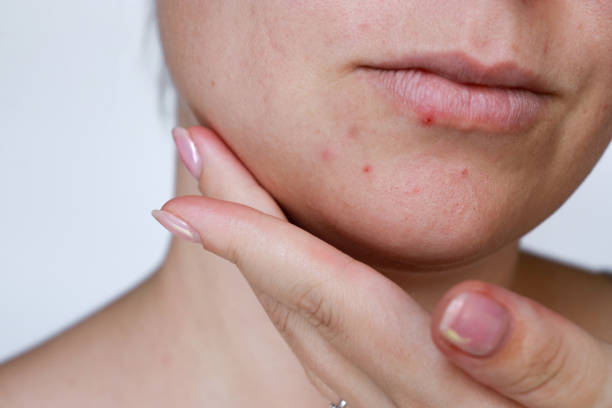Dealing with a pimple on the lip can be uncomfortable, but there are several home remedies and preventive measures you can take to alleviate the issue. Here’s a guide on understanding and managing a pimple on the lip:
Causes of Pimples on the Lip
Blocked Pores: Pimples often occur when pores become clogged with excess oil, dead skin cells, or bacteria.
Hormonal Changes: Fluctuations in hormones, particularly during menstruation, can contribute to the development of lip pimples.
Poor Hygiene: Lack of proper lip hygiene can lead to the accumulation of dirt and bacteria, triggering pimples.
Unhealthy Diet: Consuming a diet high in processed foods and sugars may contribute to skin issues, including lip pimples.
Home Remedies for Pimples on the Lip
Warm Compress:
Apply a warm compress to the pimple to help reduce inflammation and promote drainage.
Tea Tree Oil:
Dab a small amount of diluted tea tree oil on the pimple as it possesses antimicrobial properties.
Aloe Vera Gel:
Apply aloe vera gel to soothe the affected area and reduce redness.
Honey and Cinnamon Mask:
Mix honey and cinnamon to create a natural antibacterial mask. Apply and leave on for 15-20 minutes.
Avoid Squeezing:
Refrain from squeezing the pimple, as it can lead to further irritation and potential infection.
Stay Hydrated:
Drink plenty of water to keep your skin hydrated, promoting overall skin health.
Preventive Measures
Maintain Lip Hygiene:
Cleanse your lips regularly to prevent the accumulation of dirt and bacteria.
Balanced Diet:
Consume a diet rich in fruits, vegetables, and whole foods to support skin health.
Avoid Touching Your Face:
Refrain from touching your lips or face to prevent the transfer of bacteria.
Use Lip Balm:
Choose a non-comedogenic lip balm to keep your lips moisturized without clogging pores.
Check Your Toothpaste:
Some toothpaste ingredients may contribute to lip pimples. Consider using a toothpaste without sodium lauryl sulfate.
Manage Stress:
Practice stress-reducing activities, as stress can contribute to hormonal fluctuations.
When to Seek Professional Help
If the pimple persists, becomes painful, or shows signs of infection such as increased redness, swelling, or discharge, it’s advisable to consult a dermatologist or healthcare professional. They can guide appropriate treatment options, including topical or oral medications, if necessary.
Remember, everyone’s skin is unique, so what works for one person may not work for another. It may take some trial and error to find the most effective remedy for your specific situation. If in doubt, seeking professional advice is always a wise choice.

